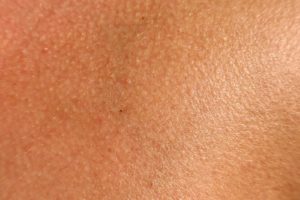 For those who missed it. An amusing and informative personal story (Julia Scott) about trying to cultivate a healthy skin biome. Well worth reading. Excerpts from the May 22, 2014 NY Times:
For those who missed it. An amusing and informative personal story (Julia Scott) about trying to cultivate a healthy skin biome. Well worth reading. Excerpts from the May 22, 2014 NY Times:
My No-Soap, No-Shampoo, Bacteria-Rich Hygiene Experiment
For most of my life, if I’ve thought at all about the bacteria living on my skin, it has been while trying to scrub them away. But recently I spent four weeks rubbing them in. I was Subject 26 in testing a living bacterial skin tonic, developed by AOBiome, a biotech start-up in Cambridge, Mass. The tonic looks, feels and tastes like water, but each spray bottle of AO+ Refreshing Cosmetic Mist contains billions of cultivated Nitrosomonas eutropha, an ammonia-oxidizing bacteria (AOB) that is most commonly found in dirt and untreated water. AOBiome scientists hypothesize that it once lived happily on us too — before we started washing it away with soap and shampoo — acting as a built-in cleanser, deodorant, anti-inflammatory and immune booster by feeding on the ammonia in our sweat and converting it into nitrite and nitric oxide.
Because the N. eutropha are alive, he said, they would need to be kept cold to remain stable. I would be required to mist my face, scalp and body with bacteria twice a day. I would be swabbed every week at a lab, and the samples would be analyzed to detect changes in my invisible microbial community.
While most microbiome studies have focused on the health implications of what’s found deep in the gut, companies like AOBiome are interested in how we can manipulate the hidden universe of organisms (bacteria, viruses and fungi) teeming throughout our glands, hair follicles and epidermis. They see long-term medical possibilities in the idea of adding skin bacteria instead of vanquishing them with antibacterials — the potential to change how we diagnose and treat serious skin ailments.
For my part in the AO+ study, I wanted to see what the bacteria could do quickly, and I wanted to cut down on variables, so I decided to sacrifice my own soaps, shampoo and deodorant while participating. I was determined to grow a garden of my own. Some skin bacteria species double every 20 minutes; ammonia-oxidizing bacteria are much slower, doubling only every 10 hours. And now the bacteria were on my skin.
I had warned my friends and co-workers about my experiment, and while there were plenty of jokes — someone left a stick of deodorant on my desk; people started referring to me as “Teen Spirit” — when I pressed them to sniff me after a few soap-free days, no one could detect a difference. Aside from my increasingly greasy hair, the real changes were invisible. By the end of the week, Jamas was happy to see test results that showed the N. eutropha had begun to settle in, finding a friendly niche within my biome.
AOBiome is not the first company to try to leverage emerging discoveries about the skin microbiome into topical products. The skin-care aisle at my drugstore had a moisturizer with a “probiotic complex,” which contains an extract of Lactobacillus, species unknown. There is even a “frozen yogurt” body cleanser whose second ingredient is sodium lauryl sulfate, a potent detergent, so you can remove your healthy bacteria just as fast as you can grow them.
Although a few studies have shown that Lactobacillus may reduce symptoms of eczema when taken orally, it does not live on the skin with any abundance, making it “a curious place to start for a skin probiotic,” said Michael Fischbach, a microbiologist at the University of California, San Francisco. Extracts are not alive, so they won’t be colonizing anything.
It doesn’t help that the F.D.A. has no regulatory definition for “probiotic” and has never approved such a product for therapeutic use. “The skin microbiome is the wild frontier,” Fischbach told me. “We know very little about what goes wrong when things go wrong and whether fixing the bacterial community is going to fix any real problems.”
I asked AOBiome which of my products was the biggest threat to the “good” bacteria on my skin. The answer was equivocal: Sodium lauryl sulfate, the first ingredient in many shampoos, may be the deadliest to N. eutropha, but nearly all common liquid cleansers remove at least some of the bacteria. Antibacterial soaps are most likely the worst culprits, but even soaps made with only vegetable oils or animal fats strip the skin of AOB.
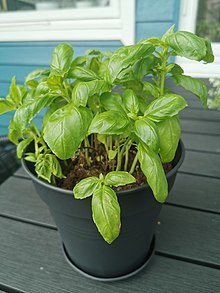


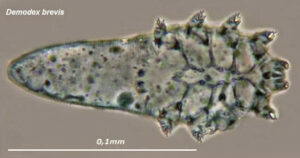
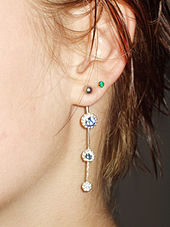

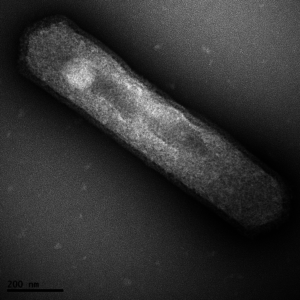 Something new to add to the list of what is in our skin microbiome - the community of microbes (bacteria, fungi, viruses) living on our skin. It turns out we also have archaea, which are
Something new to add to the list of what is in our skin microbiome - the community of microbes (bacteria, fungi, viruses) living on our skin. It turns out we also have archaea, which are